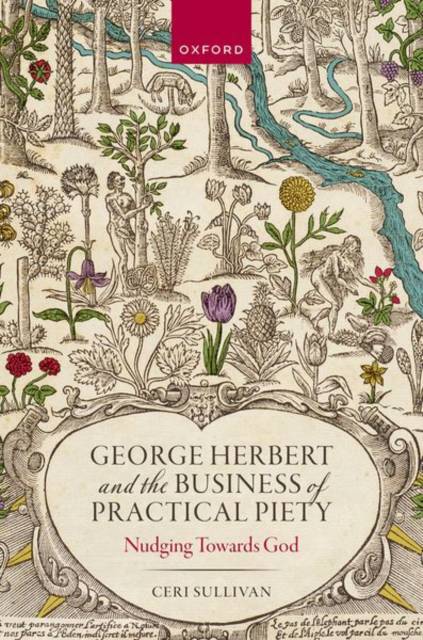
- Afhalen na 1 uur in een winkel met voorraad
- Gratis thuislevering in België vanaf € 30
- Ruim aanbod met 7 miljoen producten
- Afhalen na 1 uur in een winkel met voorraad
- Gratis thuislevering in België vanaf € 30
- Ruim aanbod met 7 miljoen producten
Zoeken
George Herbert and the Business of Practical Piety
Nudging Towards God
Ceri Sullivan
Hardcover | Engels
€ 145,45
+ 290 punten
Omschrijving
Contemporary nudge theory points out that people make good choices over issues where they have had past experience of similar circumstances, where there is reliable, substantial, and relevant information about the situation, and where they will get prompt feedback about the effect of their decision. Yet none of these conditions apply to the most vital choice of action facing early modern Protestants: how can they be saved? In George Herbert and the Business of Practical Piety, Ceri Sullivan uses nudge theory to show how practical divinity disregards the doleful conclusions of predestination--that salvation cannot be earned--to supply readers with suggestions on how to prepare to act, regardless of their final destiny. Such texts create cognitive niches to support cheerful, godly thought and action, in a way which is far from being despairing or compulsive. Their nudges were repeatedly put into practice by Herbert's friends, the Ferrars, who tried to form an ideal religious community at Little Gidding. These prescriptions and examples illustrate how George Herbert's The Temple (1633) is a compendium of the techniques of choice architecture. Herbert's poems are full of the humour emerging from a life of faith which is willing to guard high ideals by low cunning, stooping to use the least little things to change a self. George Herbert and the Business of Practical Piety initially calls on theories of the extended mind to ask what sort of minor physical and social structures scaffold decisions, then examines a selection of nudges used by Herbert: contracts with the self, building a mind, cleaning a heart, conversing with God, making to-do lists, and working on working well.
Specificaties
Betrokkenen
- Auteur(s):
- Uitgeverij:
Inhoud
- Aantal bladzijden:
- 224
- Taal:
- Engels
Eigenschappen
- Productcode (EAN):
- 9780198906810
- Verschijningsdatum:
- 24/09/2024
- Uitvoering:
- Hardcover
- Formaat:
- Genaaid
- Afmetingen:
- 152 mm x 224 mm
- Gewicht:
- 498 g

Alleen bij Standaard Boekhandel
+ 290 punten op je klantenkaart van Standaard Boekhandel
Beoordelingen
We publiceren alleen reviews die voldoen aan de voorwaarden voor reviews. Bekijk onze voorwaarden voor reviews.







